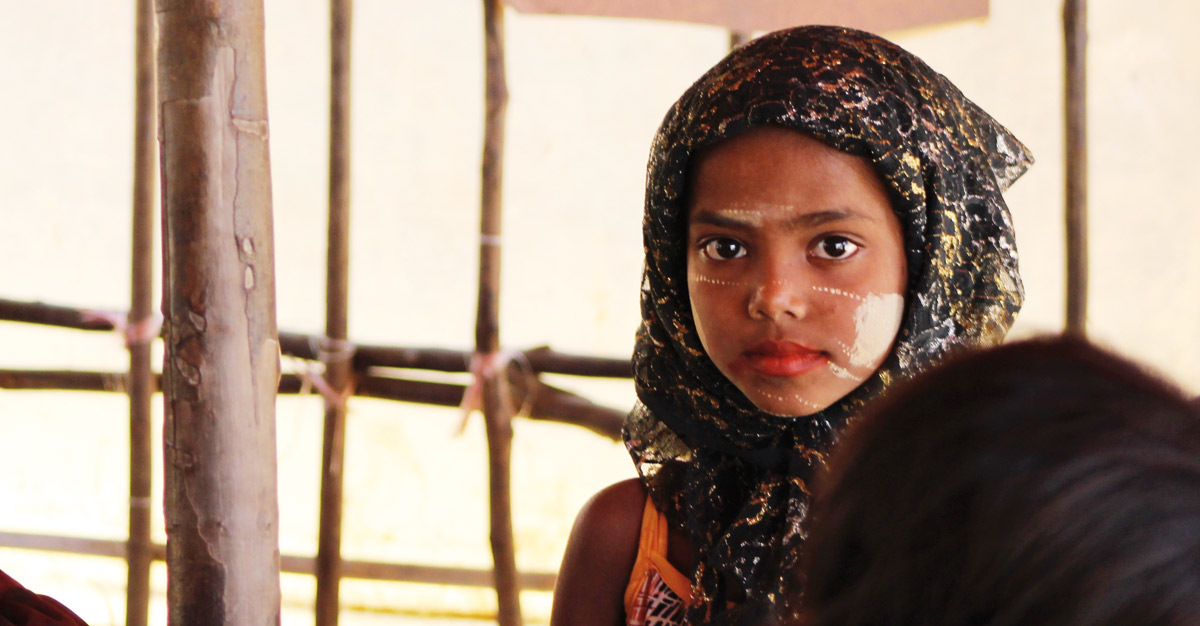|
For over 5 years now Children on the Edge have been working with Rohingya refugee children in the makeshift camps of Bangladesh. The Rohingya are a Muslim minority group in Rakhine State, Myanmar who are widely considered the most persecuted group in the world.
Since their government passed the 1982 Citizenship Act, the Rohingya people have been denied access to citizenship and subjected to grave human rights abuses at the hands of the authorities and local population in Myanmar. To escape this treatment, they make perilous journeys at sea or flee across the borders, often to countries that are already impoverished and over populated. Bangladesh is now hosting around 400,000 Rohingya people and despite the recent surge of violence in Myanmar, are currently turning them away. In the last month there has been an additional surge of violence against the Rohingya in Myanmar, and a UN official has stated that the agenda fuelling it is ethnic cleansing. Some 30,000 Rohingya have fled their homes in the last month and an analysis of satellite images by Human Rights Watch has shown that hundreds of buildings in Rohingya villages have been razed. Claims of gang rape, torture and murder are adding to the crimes against humanity endured by this people group. Conditions for those that have made it across the border are poor and children have no opportunity for education. Official refugee camps are at capacity, overspilling into illegal makeshift camps. Movement is restricted and refugees have no permission to work outside the camps. They are often subject to attacks and persecution from locals who resent the refugee community. Children on the Edge work in the largest makeshift refugee camp in Bangladesh providing low profile primary education for Rohingya children in the camp. We operate 45 classrooms within the camp, enabling 2,700 children to gain a full primary education. All children follow a government recognised curriculum and take exams, ensuring that their education is officially recognised in Bangladesh, despite their migrant status. Without this provision there is a chance a whole generation of Rohingya will grow up unable to read or write, the latest wave of violence has tripled the amount of refugees coming into the areas we are working and the need is greater than ever. We are actively looking for support and funding for this vital work. Please get in touch if you think you can help with funding, or think about making a donation. Thank you. Support usComments are closed.
|
RECEIVE OUR EMAILSBlog Categories
All
Archives
July 2024
|
|
JOIN US ON SOCIAL MEDIA
|
Annual Report | Contact Us | Jobs | Media Centre | Resources | Shop
Accessibility & Policies: Accessibility | Equity, Diversity & Inclusion Policy | Complaints| Privacy Policy | Safeguarding
Accessibility & Policies: Accessibility | Equity, Diversity & Inclusion Policy | Complaints| Privacy Policy | Safeguarding
Children on the Edge, 5 The Victoria, 25 St Pancras, Chichester, West Sussex, PO19 7LT, UK | 01243 538530 | [email protected]



 Give monthly
Give monthly Fundraise for us
Fundraise for us RSS Feed
RSS Feed
